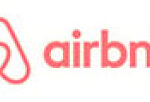It’s been a buoyant cycle for hotels in Ireland: long, sustained periods of rising demand, and either constrained supply, or new supply that has been easily absorbed. Transactions have also been strong on the back of these favorable dynamics.
For example, the 4-Star Ruby Molly Hotel in Dublin 7 reportedly sold to German group Deka Immobilien as a lease deal this year for €86m (€316k per key). While Deka is known as a leading global real estate fund, the buyer pool for Irish hotel assets in general has been diverse. Capital has come in from various sources – high net worths, family offices, real estate funds and private equity – and closed transactions across both single assets and platforms.
Readily available credit (national banks like AIB and Bank of Ireland, but also private credit) has also been a further facilitator of deal activity, albeit at more reasonable loan-to-value ratios than past cycles.
The question now is whether a storm is brewing: a storm of new transaction volume highs led by large-scale platform deals, or a storm of trading upheaval, comprising the current period of relative calm. Irish hotels have been delivering sold profit & loss performance for several years running.
Why Investors Like Irish Hotels
One key driver of deals during this cycle has been Ireland’s perceived and real ease of entry (i.e. transparent legal, debt and operating frameworks), particularly for overseas buyers. But it’s not just overseas buyers that have been active, domestic groups like Cork-based Cliste Hospitality have also joined the acquisiton wave.
With the acquisition of the 69-bedroom Keadeen hotel in Kildare, they expanded to their 15th property under management. Whichever the buyer type, the investment thesis for Irish hotels has been lining up well.
The combination of business drivers (Ireland being the gateway to the EU, a tax favorable environment and center for financial and tech sectors) has paried with robust tourism figures. According to the Central Statistics Office, for the full year of 2024, an estimated 6.6m international visitors travelled to Ireland, up 6.7% on 2023. At the same time, the domestic market has proven resilient and further bolstered trading.
The results have been impressive, especially in Dublin where hotel occupancy has been above 80% for the last two years. An average daily rate (ADR) of €180 recorded in 2023 was already 27% above 2019 levels. These are staggering figures, even considering the post-Covid recovery.
Transaction Volumes and Market Performance
From an investor standpoint, the combination of these factors has allowed for investor underwriting to show improving performance, a potential further tightening of yields and strong overall deal returns, at least on paper.
Volumes have therefore soared to just shy of €1bn (including development sites and hostel transactions) for 2024; this placed Ireland sixth on an HVS European Hotel Transaction volume comparison chart. Activity like this was last seen in Ireland in 2015, but the volume level has not been reached since the previous peak of €1 billion in 2006, just before the Global Financial Crisis.
It is reported by CBRE that transaction volumes could approach another €800m in 2025, with several anticipated platform sales and pending deals on the horizon. A successful acquisition of Dalata Group, reportedly being bid by major players at a potential valuation of €1.7bn, would surely shatter any historic transaction volume records for the country in a single year.
Signs of a Market Shift in Ireland
We appear to be well progressed in a cycle of positive hotel performance, but off the cycle highs and with increasing clouds on the horizon. In the year to December 2024, national RevPAR still increased by 0.5%. However, the Dublin market RevPAR already peaked in 2023 and fell by 2.2% in 2024.
In the short-term, hoteliers have and can trim costs to combat inflationary factors and/or softening RevPAR levels, but there are other looming factors. The Irish Tourist Industry Confederation (ITIC) recently reported t




